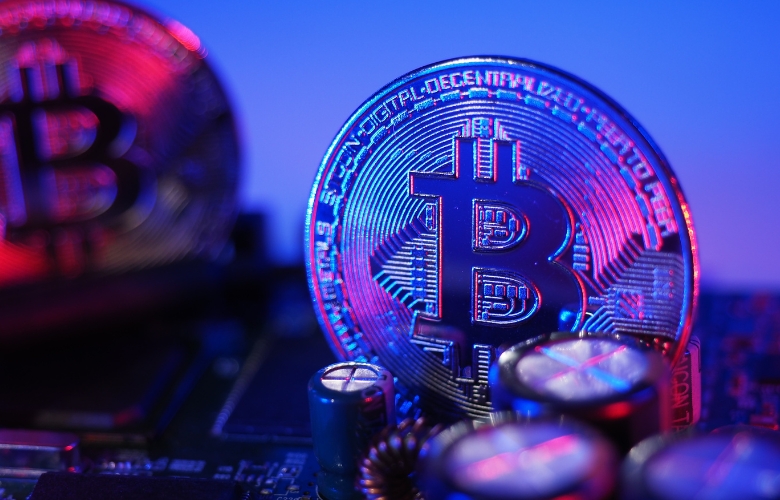
If you’ve never heard of cryptocurrency, it’s time to do some research on it now that it has been there for a while. A cryptocurrency is essentially a digital form of money that allows users to remain anonymous while using mathematical algorithms to ensure the security of transactions.
It differs from cash in that it is digital and leaves no paper trail, enabling users to spend as much as they have in their cash deposit without leaving a trace of where the money went—or how much they actually have.
Any song or record that can be purchased using cryptocurrency or that is distributed on a blockchain network is referred to as “crypto music.” This new approach of making and distributing music can be advantageous to everyone involved in the industry, including musicians, producers, and managers.
Crypto Music: Understanding Its Scope
Crypto music has a great deal of potential to transform the music business and enhance the lives of musicians.
On decentralized networks, where ownership, money, and control of data stay in their hands, musicians can now distribute and promote their music. Also, they receive payment right away for each stream, rather than having to wait months to get reimbursed for their effort.
Here are a few crucial benefits of crypto music for artists and listeners:
Better Earning Potential
Platforms for the decentralized dissemination of music can increase artist revenue.
It’s also important to note that no one is now dictating to musicians how much they may charge for their songs or when they can release new albums. The fact that artists now have complete control is wonderful. Fans will adore it as well because they will be able to purchase songs for any amount they desire (or album).
Secure Music Sharing
The underlying technology of cryptocurrencies, known as blockchain, can help with copyright issues and make music sharing more secure.
Your favorite song is entered into a ledger, also known as a record book, when you share it on the blockchain. You can discover who initially composed the song and its origins using the ledger. When musicians need to market their work or file for copyrights, these records will be useful.
By layering new digital rights management (DRM) layers over existing ones without affecting anything else, the blockchain can also provide copyright protection.
As the person who made these modifications would need access to every single layer before they could do anything more with their own adjustments on top, this ensures that your music is safeguarded even if someone tries to modify its permissions in the future.
Enhanced Listening Experience
The blockchain’s ability to retain song metadata, which gives each song and artist a distinct identification, is one of its main advantages. This makes it simpler for users to locate and authenticate the music they want.
You might think of metadata as information about information.
In this instance, when we discuss metadata in respect to music, we are explicitly referring to information regarding the composition and authorized usage of a song.
Who wrote the song, who has the rights to use it in commercials, when and where it was recorded and published, what album or playlist it is on—the list goes on—are all examples of metadata.
Record labels frequently include this data in their databases (or “catalogs”) so that users can more efficiently search through their content. Yet, these catalogs are vulnerable to fraud and inaccuracy as you might anticipate from such a massive amount of data being held in one central location.
When MP3 versions or audio files are dispersed across decentralized ledgers (like blockchains), they become much less susceptible to manipulation or deletion because there are multiple copies across many different locations rather than just one copy that could be easily corrupted or deleted by an attacker. This is true for the majority of other types of digital files (for example, images).
More Freedom to Artists
One of the most important things to keep in mind is that artists may communicate with their fans directly thanks to the blockchain. Direct music sharing by artists is available for free, for a small audience, or for purchase. Also, they can communicate directly with fans and others.
This is made possible via the blockchain, which acts as a secure, open-access decentralized database. In addition to maintaining control of their intellectual property, it enables artists to access markets outside the purview of gatekeepers like record labels (IP).
Improved Audience Engagement
Blockchain technology is more than just a fad. It is rapidly taking over the music industry and altering how investors, fans, and musicians communicate with one another.
Fans can purchase music or albums using apps like Musicoin and swap cryptocurrency for them. Also, they are able to resell their copy of the song or album. In return for cryptocurrency tokens that are traded on the blockchain, musicians can sell their songs.
These transactions are documented in an unchangeable public ledger that anybody can access and independently verify.
With the help of modern technology, musicians have discovered creative methods to make money off of their art and give customers more control over their intellectual property. Some fans might be incentivized to listen to music because they have partial ownership of it on the blockchain.
© 2021 TheatreArtLife. All rights reserved.